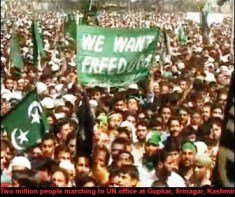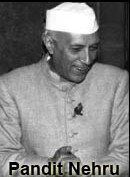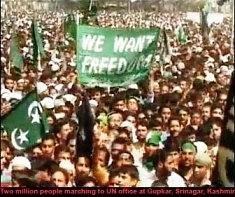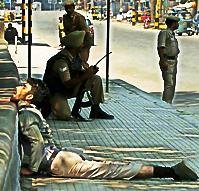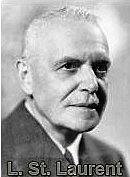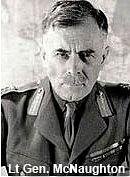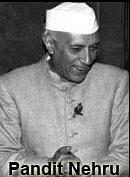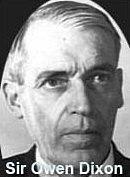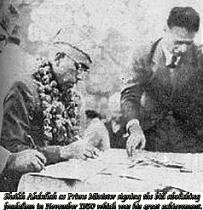Kashmir endures India's Crimes against Humanity
In the past few decades increased violence in Kashmir left hundreds and thousands dead, thousands of mass graves of unidentified bodies unearthed. People in the streets of Kashmir are asking, what holds back United Nations from appointing a Rapporteur to find out the facts leading to these atrocities and it is vitally important to keep peace loving people world over apprised of these stark factual happenings. For the sake of world peace and to avoid a catastrophe as two nuclear powers with a history of fighting wars need to be brought to a negotiating table including the real stakeholders, people of Kashmir, to decide the future of Kashmir. An old festering wound of perennial subjugation is nursed by people who urge and plead the international community to intervene to free these millions from military occupation.
The main purpose of the largest concentration of army is to confine people behind doors to keep people off the roads from having peaceful demonstrations in millions, an act that embarrasses the powers in control as International Community asks few questions. The army is equipped with draconian laws to do what it deems fit to carry out the policy of subjugation applying brute force. The draconian laws giving the army a pretext, to carry out excesses with impunity, in blatant violation of international law, are extended to Kashmir. The hapless people have to live under the shadow of these black laws which include the following:
-
The Terrorist and Disruptive Activities Act [TADA]; under which a person can be detained without formal charge or trial for up to one year for SUSPECTED TERRORIST or DISRUPTIVE activities, Court hearings must be conducted IN SECRET! The court has the power to keep the identity of any witness secret, including the accuser! Confessions are permissible as evidence if the police assure they were obtained voluntarily.
-
The National Security Act [NSA], under which any person can be, detained WITHOUT CHARGE OR TRIAL for up to one year to prevent them from acting in a manner prejudicial to state security, the maintenance of public order, or relations with a foreign power.
-
The Jammu & Kashmir Public Safety Act [JKPSA] empowers India to detain persons without trial for up to FOUR YEARS for a broad range of activities, including such nebulous charges as promoting, propagating, or attempting to create feelings of enmity, hatred or disharmony on grounds of religion, race, community, or region.
-
The Armed Forces Special Powers Act [AFSPA] empowers Indian Security Forces to search homes WITHOUT WARRANTS, make arrests without warrants, and destroy suspected hideouts of potential terrorists, and THE RIGHT TO SHOOT-TO-KILL with total immunity from prosecution.
After a huge damage to the populace in terms of killings, rapes, and destruction of property, the imposition of these opprobrious oppressive laws are projected as a ´need´ to curb insurgency and a ´law and order problem´. A hype is being created in the media to discuss the need or removal of these illegal ´laws´; an attempt to divert the attention of people, locally or on international level, to eclipse the main issue of political independence for which people have been sacrificing and fighting from October 26, 1947.
Anybody visiting Kashmir will come across concrete bunkers in thickly populated cities and villages; duty bound army equipped with sophisticated weapons staring at the doors of every household within the sight for a particular army bunker. India´s so called "black cat commandos" can be seen roaming around everywhere to shoot at sight and go for a commando action without needing a pretext to act. Anyone and anybody can be picked up anywhere to be dispensed in a torture chamber never to know the person´s whereabouts.
The youth of Kashmir has been shifting from bricks and stones to armed struggle and back to bricks, trying to convey their message to the occupiers that the struggle will continue till the objective of achieving freedom is fulfilled. More than half of the population men, women and children are faced with traumatic situation and have lost the power to think rationally. Living under the shadow of gun for decades has filled lunatic asylums and turned populace into neurotics.
Kashmir history replete with stories of oppression and inhuman treatment on a people belonging to this most beautiful place blessed with abundant natural resources faced perpetual wars from Khokh, Tungan and Mongols who came through Karakoram mountainous range to deprive people of their belongings, live stock and women. This was followed by Mughals who fought wars and adopted a different strategy of deceit by inviting King Yousuf Shah Chak for negotiations with resultant imprisonment and death.
The rule of Afghans, Sikhs and Dogras was no less barbaric and novel methods of torture and “begar” conscription rules were practiced freely to rule people with an iron hand. The appointment of a Resident Official by Government of British-India to oversee the running of Dogra government, after receiving a number of complaints, put some restraints on the rulers offering a welcome respite to the people of Kashmir.
Kashmir´s unending vows were to take new dimensions; as soon after the transfer of power to India by British in August 1947, the interim Prime Minister of Kashmir Sheikh Abdullah´s land to tiller legislation unnerved 4% Kashmiri Pandits who sensed white collar bureaucratic power base coming under threat and also the fear of losing feudal supremacy that gained gradual momentum. Pandit Nehru assured and won Sheikh Abdullah´s trust by promising him an independent Kashmir in private and in public, a stand Pandit Nehru backtracked once Indian army established firm military control on Kashmir.
In order to find a lasting political solution to avoid future wars between India and Pakistan, a number of international dignitaries considered it imperative to make a serious effort to resolve the issue. In this connection, initially, Australian diplomat Sir Owen Dixon visited Kashmir on July 30, 1950 and gave several proposals, if allowed to be implemented could have saved thousands of lives those perished in brutal subjugation and wars fought between India and Pakistan. Sir Owen Dixon´s popularly known as "DIXON PLAN" discussed at length in many forums believed to be a practical solution a historical reality lies in cold storage.
Thereafter, American diplomat Adlai Stevenson travelled to Kashmir in early 1953 and held discussions with Prime Minister Sheikh Abdullah which became a turning point for Kashmir to be occupied permanently as Sheikh Abdullah was accused of trying to seek help from United States to create an independent nation of Kashmir and Sheikh imprisoned for a record number of years.
Prime Minister, Louis Stephen St-Laurent of Canada (1948-57) supported the wishes of the people of Kashmir to be ascertained by the will of the people supervised by United Nations. Canadian General Andrew McNaughton supported a proposal in UN Security Council, in the Resolution adopted on August 13, 1948 and January 5, 1949. India turned a deaf ear to all these efforts made on international level.
Apart from the efforts made on international level, backdoor clandestine diplomacy was also initiated side by side from many quarters but all this did not go down well with political hierarchy of India and the conflict continues unabated for the rigid stand shown by successive governments of India. India used Soviet Union’s veto power to scuttle all UN Security Council Resolutions on Kashmir and managed to delay the matter only to turn the issue more volatile.
The fight with occupying force soon after August 1953 continued and people using bricks and stones facing bullets resulted in the deaths of fifteen hundred people. Indian military occupation firmly in place; puppet regimes from time to time were installed to rule the people against their will and the present government runs with the remote control in the hands of Indian army and its Para-military forces numbering more than one million.
The international community and United Nations Secretary General Baan Ki Moon need to remind India of Jawaharlal Nehru´s Telegram to British Prime Minister Clement Attlee on October 25, 1947:
"I should like to make it clear that question of aiding Kashmir in this emergency is not designed in any way to influence the State to accede to India. Our view which we have repeatedly made public is that the question of accession in any dispute territory or State must be decided in accordance with the wishes of the people and we adhere to this view."
Comments
There are 0 comments on this post


